North Sea cod back on the menu, marine body says
- Published
- comments
Why North Sea cod is back on the menu
North Sea cod has been taken off the Marine Conservation Society's (MCS) list of fish to avoid eating.
The UK charity had previously said cod should not be eaten because stocks were only slightly above sustainable levels.
But it says it can now be eaten as an occasional treat following a recovery in numbers and having been removed from its red list of endangered fish, external.
Samuel Stone, from MCS, said the announcement was a "milestone", but fishing levels still needed to reduce.
The MCS said cod levels may never fully recover to their peak numbers of the 1970s and early 1980s.
There were now nine endangered stocks, which need "some of the attention that North Sea cod has had", it added.

Cod and chips
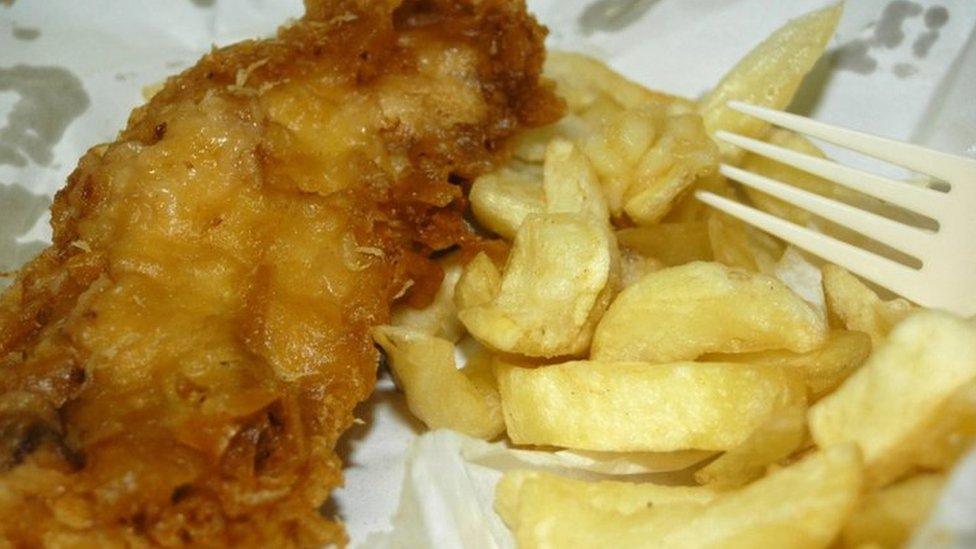
About 50,000 tonnes of cod is thought to be eaten in UK fish and chip shops each year
There are about 10,500 chippies in the UK - the first opened in 1860
Haddock is favoured fish in Scotland, Yorkshire, and the Midlands
Cod is the fish of choice in most parts of the UK
About 95% of cod sold in fish and chip shops is caught in Arctic waters
Seafood consumed in the UK in 2014 increased by 3.3% in 2014, to £6.33bn

'Years of sacrifice'
North Sea cod numbers collapsed during the 1980s through a combination of sustained overfishing and changes to the environment.
But the MCS said the fishery was now showing signs of improvement.
It said strict limits on catch sizes over the past 10 years were helping numbers to recover and North Sea cod could now be eaten about once a week as a treat.

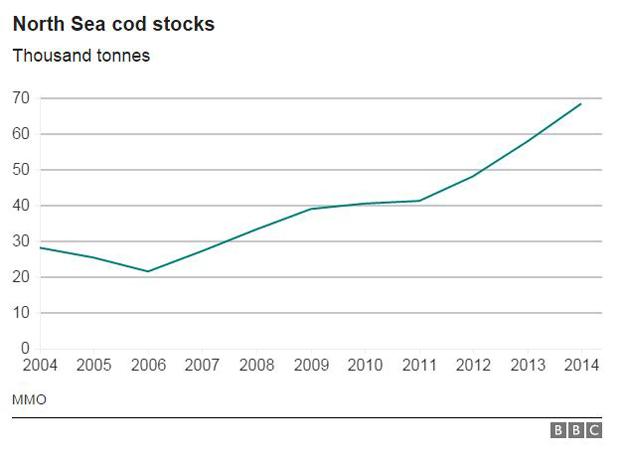
Mr Stone said "years of sacrifice and a lot of hard work" had led to population increases, but added: "Efforts of recent years need to continue in order for the fishery to head towards the green end of the spectrum."
'Trade will win'
Scotland's minister for rural affairs, food and the environment, Richard Lochhead, said the news was "a vote of confidence in North Sea cod" and reflected the "hard work put in by our fishermen".
Bertie Armstrong, chief executive of the Scottish Fishermen's Federation, welcomed the announcement, but said the organisation still did not believe North Sea cod should have been classed as a fish to avoid in the first place.
"It is not just North Sea cod, the majority of fish stocks of interest to Scottish fishermen are in a healthy state and being fished sustainably, which is fantastic news for consumers looking for great tasting and healthy to eat food for their shopping baskets," he said.

Which cod remain at risk?
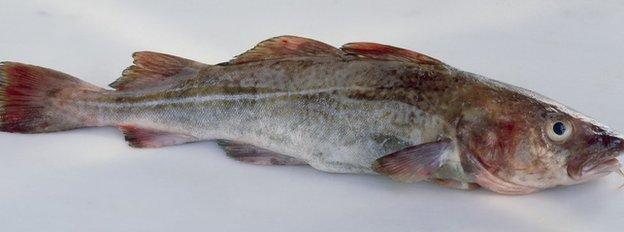
Celtic Sea
Faroes Plateau
Faroes Bank
Irish Sea
Kattegat
Norwegian Coast
Rockall
West of Scotland
West Baltic

Don Tyler, a fish merchant at Billingsgate Fish Market, said customers would feel the benefits from the announcement.
He said cod sold in the UK had been coming from the Atlantic in the last few years but - following a meeting with Scottish fisherman this week - North Sea cod would soon make a return.
"The trade will win and the British public will win, because they will get a better product at a more reasonable price," he added.
Another merchant, Mark Morris, added: "We've known in the industry for a while it was coming but it is a case now that we can go back to it being a British product, caught by British fisherman, on a British plate."
- Published25 September 2015
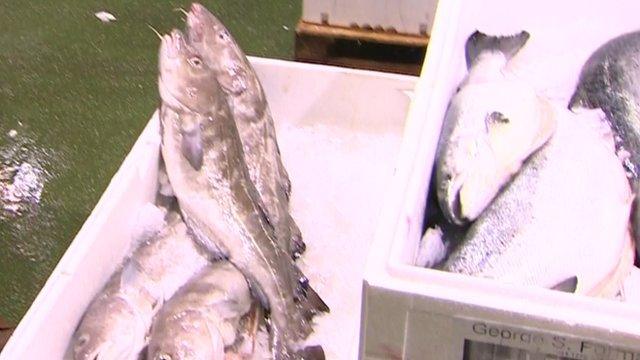
- Published5 December 2014
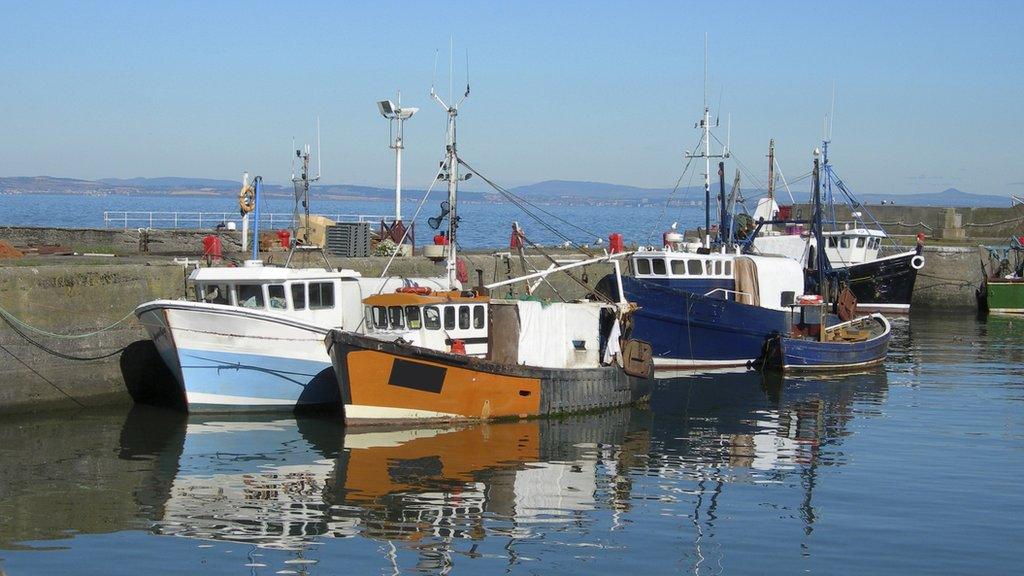
- Published13 November 2013

- Published8 June 2013
